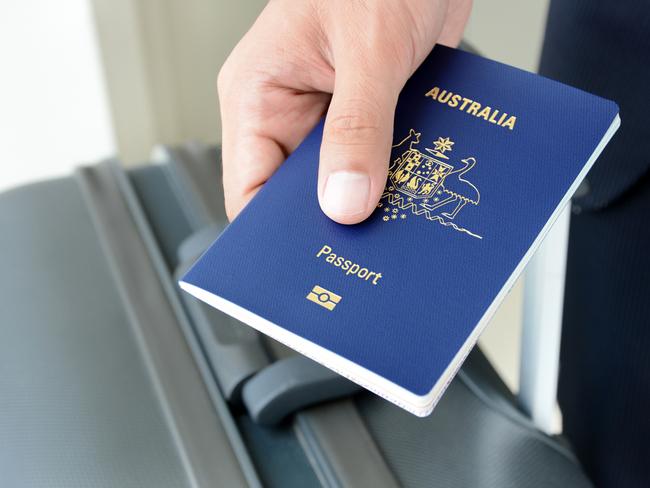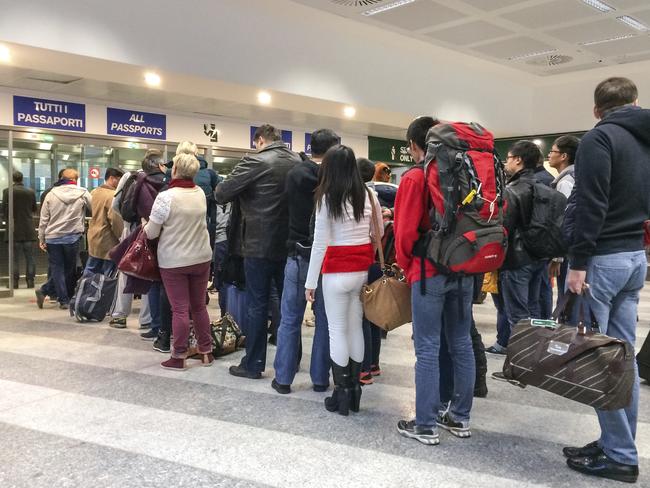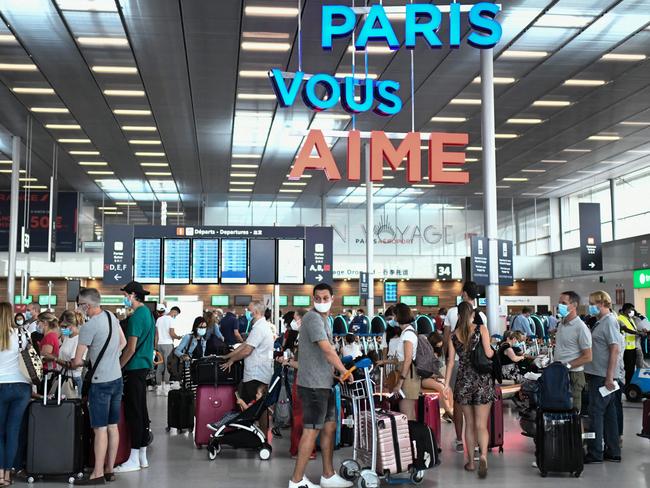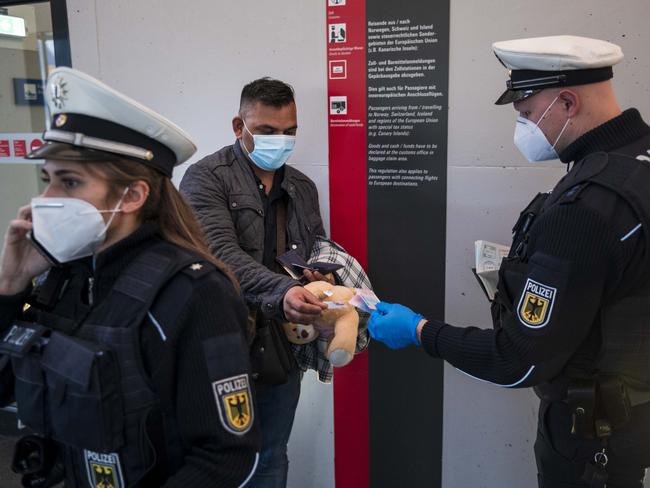Huge visa change for Australians going to Europe
Thirty countries in Europe are changing the way they allow Australian travellers in. Here’s what you need to know including what it will cost.

Travel
Don't miss out on the headlines from Travel. Followed categories will be added to My News.
It’s a big change coming for Aussies wanting to travel to Europe: a new travel authorisation to enter 30 different countries, which could take up to 30 days to be approved in some cases. Here’s what you need to know.
NEW PROCESS
Anyone who has travelled to the United States in the past 16 years will be familiar with the ESTA, the Electronic System for Travel Authorisation, entailing a fee and a four-page form requiring quite detailed information.

Now Europe is implementing a similar measure, called the ETIAS, the European Travel Information and Authorisation System, which will be linked to your passport.
It’s not technically a visa; it’s a mechanism for screening arrivals prior to travel.
Starting in the first half of 2025, the change means that travellers coming in to Europe from Australia and 59 other visa-exempt countries will have to apply for the ETIAS.
There will be a “transitional period” of six months in which travellers who have not yet applied for ETIAS can still enter Europe, so long as they fulfil all entry conditions. But expect a longer wait at border control if that is the case.
THE COST
The initial cost of applying for the ETIAS is 7 euros – equivalent to A$11.57. There is no cost for travellers under 18 and above 70, and for those who are family members of EU citizens – but be warned, if you declare this option, you will need to provide name and contact details for those family members.
WHAT YOU GET

The ETIAS is a condition of entry for 30 European countries, enabling you to stay up to 90 days in any 180-day period. It’s good for three years or up until your passport expires.
The countries that are part of the scheme are Austria, Belgium, Bulgaria, Croatia, Cyprus, Czech Republic, Denmark, Estonia, Finland, France, Germany, Hungary, Iceland, Italy, Latvia, Liechtenstein, Lithuania, Luxembourg, Malta, Netherlands, Norway, Poland, Portugal, Romania, Slovakia, Slovenia, Spain, Sweden and Switzerland.
There are a few European countries that are not included in the ETIAS, including some that are big destinations for Aussie travellers, including the United Kingdom, Ireland and Turkey. The ETIAS also does not cover some of the former eastern bloc countries such as Russia and Belarus, and the European microstates of Andorra, Monaco, San Marino and Vatican City.
HOW LONG DOES THE PROCESS TAKE?

Applying for an ETIAS can be done online or via the dedicated app. Administrators say most applications will be processed “within minutes” but warn that the processing period can be as much as 30 days if an interview is deemed necessary.
WHAT YOU WILL BE ASKED?

The basics: Your names, surname, date and place of birth, nationality, home address, parents’ first names, email address and phone number.
Travel document details: That is, your passport number and where it was issued.
Travel plans: Where you intend to travel first, where you will be staying, and planned length of stay.
About you: Your level of education and job.
More detailed stuff: If you have any criminal convictions, or have been deported from any countries, these will need to be detailed as part of your application. Also if you have travelled to any war zones, these will need to be disclosed.
WHY IS THIS CHANGE HAPPENING?
The European Parliament adopted the ETIAS system in 2018, with the stated aim of enabling member states to “manage their external borders more effectively and improve internal security”.

European Commissioner for Migration, Home Affairs and Citizenship Dimitris Avramopoulos said that the system “will ensure that we no longer have an information gap on visa-free travellers”.
“Anyone who poses a migratory or security risk will be identified before they even travel to EU borders, while the travel of bona fide travellers will be facilitated,” he said.
While security concerns have been a fixture of international travel for decades, the past few years have the emergence of another threat: disease.
The ETIAS information pages explicitly state that the system will enable participating countries to control “irregular migration of high epidemic risks”.
More Coverage
Originally published as Huge visa change for Australians going to Europe





